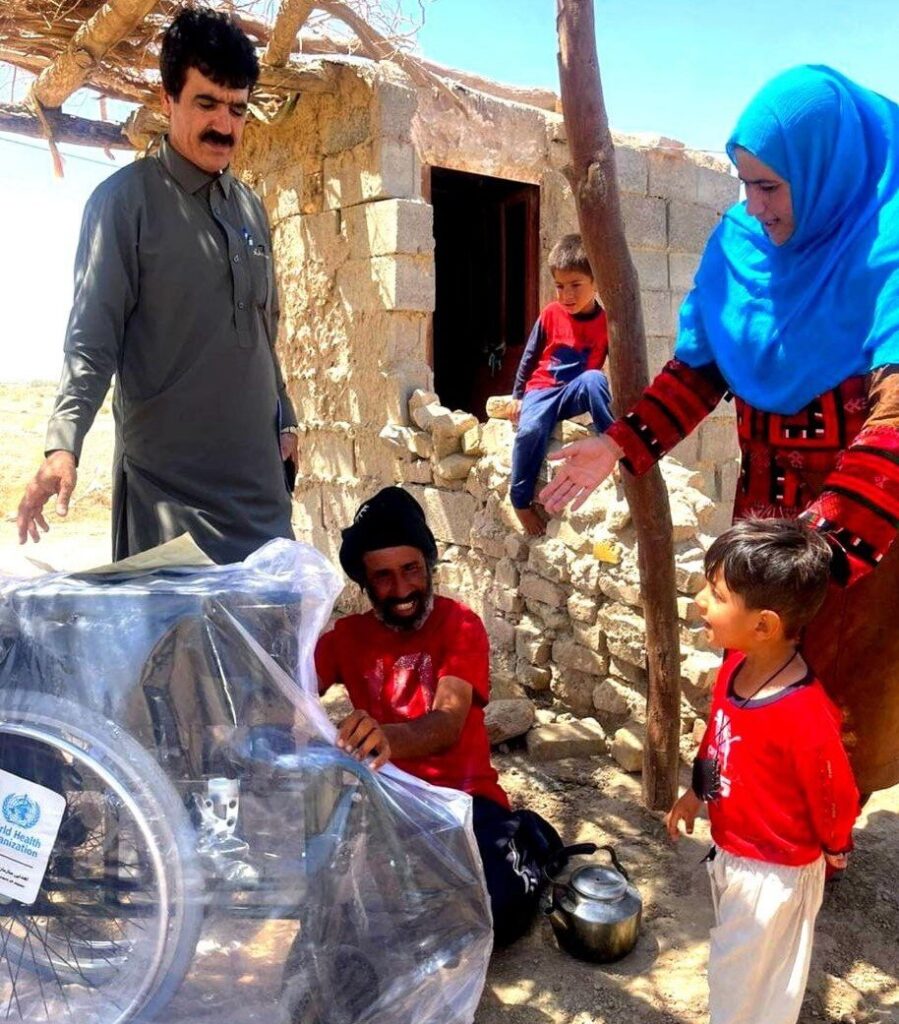Tehran – launched in 2023 by the United Nations Iran, a UN programme for people with disabilities, and was realized through joint efforts by the World Health Organization (WHO), the United Nations Children’s Fund (UNICEF), and the United Nations Population Fund (UNFPA).
To improve comprehensive service delivery, 410 experts and frontline workers from early childhood education, mental health, emergency response, and UN agencies were trained using disability inclusion training packages. This initiative strengthened our ability to provide comprehensive and effective support.
For the first time in Iran, earthquake training was held at a special school for children with mobility disorders. Additionally, the newly developed guidelines have introduced customized disaster prevention strategies for children with autism, hearing impairment and physical disabilities, setting new standards for comprehensive risk reduction.
The United Nations, built in 2021 with previous efforts, established isolation rooms in 30 facilities in 13 states, developed 13 risk reduction guidelines, trained 150 caregivers, and ultimately benefited more than 7,000 elderly and disabled people. A 2024 UN study showed that interventions had a significant positive impact on outbreak preparation, reduced infectious diseases, improved care, and reduced costs.
To promote independence and mobility, 1,099 people with severe disabilities from low-income households in Cistan and Balchestan, including 32% of women and 18% of refugees, embraced essential assistive technologies such as wheelchairs, walkers and blind kennes. Additionally, they gained access to AIDS for everyday life, such as portable toilet seats and transfer boards, improving their daily functions and quality of life.
To enhance learning opportunities, Braille embossing has been sourced for the Ministry of Education’s special education institutions, providing access to comprehensive educational materials for 2,500 visually impaired students. This intervention addressed 30% of the national needs.
Economic empowerment remains an important focus, with 135 women with disabilities receiving vocational training by Karman and Kohiruye Ahmad. Among them, 20 women participated in specialized e-commerce training through innovative, unpublished partnerships with technical and vocational training organizations and the private sector, expanding employment and entrepreneurship opportunities.
The impact of sanctions on people with disabilities
In the 17th session of the Conference of the Parties on the Convention on the Rights of Persons with Disabilities (CRPD), former head of the national welfare organization, Ali Mohammad Kadeli, said Iran will make every effort to strengthen and expand the services needed for people with disabilities in accordance with the rights of persons with disabilities.
The meeting was held at the United Nations Headquarters in New York from June 12th to 13th, 2024.
“This is despite the fact that the cruel sanctions imposed by the United States and many Western countries in the Islamic Republic of Iran have significantly increased the key costs of rehabilitation items and professional services, and significantly increased the economic capacity of individuals receiving such services,” he said.
“Respect for people with disabilities and strive to create equal opportunities for them has always been crucial to our religious and national teachings, as well as to the programmes of the Islamic Republic of Iran.
One of the most important steps we have taken to support the rights of people with disabilities is the enactment of laws to protect the rights of people with disabilities,” the official emphasized.
mt/mg

